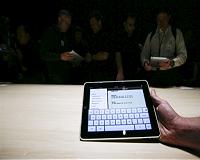 |
Sydney (AFP) Jan 31, 2010 Australian Internet rights groups fear a piracy court case could force Internet Service Providers (ISPs) to become "copyright cops" and cut web access to customers who make illegal downloads. The Federal Court is on Thursday expected to hand down its judgement in the case, which has pitted Hollywood and Australian film and television producers against Australia's third-largest Internet provider iiNet. The entertainment companies, which include Village Roadshow, Paramount Pictures Australia and Twentieth Century Fox International, say iiNet has not done enough to stop its customers illegally sharing movies on the net. But iiNet argues it has never encouraged or authorised the illegal sharing or downloading of files in breach of copyright laws and specifically warned its users against doing so. Electronic Frontiers Australia, which aims to protect the civil liberties of Internet users, said the case goes further than any other similar case seen around the world in holding an ISP responsible for a customer's illegal activities. "It doesn't seem to be a paradigm that we are used to seeing in the rest of offline life," spokesman Geordie Guy told AFP. "We've never seen a company which supplies electricity held responsible for supplying electricity to a house which grows illicit drugs, for example." The case hinges on more than 94,000 alleged infringements on the iiNet network over 59 weeks from June 2008, involving titles such as "Batman Begins" and "Dark Knight." The consortium of 34 Australian and US media content providers sent iiNet notifications of the infringements but say nothing was done about them. The Australian Digital Alliance (ADA), which is pushing for intellectual property law reform, fears if iiNet loses it could set a precedent leaving ISPs no choice but to terminate the access of Internet users accused of making illegal downloads without each case coming to court. The term intellectual property refers to areas such as copyright, designs, and patents, confidential information and trade marks. "The ADA believes that access to essential services, such as the Internet, should not be terminated without the fundamental protection of independent judicial oversight," the alliance's Matt Dawes told AFP. Dawes said ISPs were under mounting pressure to regulate the activities of those who subscribe to their Internet services. "The strategy of compelling ISPs to act as 'copyright cops' enforcing private rights is a last-ditch response to the difficulties of preventing file-sharing," he said. BitTorrent websites were hard to shut down while individual file-sharers were too numerous to sue, added Dawes. BitTorrent is a technology that allows online users to share parts of a large file such as a film or song over the Internet. The parts are then stitched together on the end user's computer to create a complete file. iiNet CEO Michael Malone agreed in court that half or more than half of traffic by volume across the company's network was BitTorrent traffic, and that the technology was frequently used to illegally download movies and TV shows. "Placing responsibility for reducing file-sharing on ISPs is inappropriate because it will shift the cost of copyright enforcement on to customers and has great potential for abuse without proper supervision," Dawes said. Whatever the court decides, there was likely to be legislative action in Australia to clarify how ISPs should implement a policy to terminate repeat copyright offenders, Dawes said. David Crafti, who heads the recently formed Pirate Party Australia, which wants to see intellectual property law reform, says the case could open up issues of privacy if ISPs were essentially expected to spy on their customers. "In order to enforce copyright laws strictly, the problem is that nowadays what's actually required is invasions of privacy which are actually anathema to a free society," he told AFP. Crafti said lawmakers had been slow to respond to the enormous changes brought about by the Internet and needed to recognise there was currently no way to prevent illegal downloading without taking draconian measures. "The way I see it, the Internet is a utility. It should be on tap like water. And as soon as you start limiting that, you are limiting the freedom of your society," he said.
Share This Article With Planet Earth
Related Links Satellite-based Internet technologies
 Apple's Jobs unveils new tablet computer, the iPad
Apple's Jobs unveils new tablet computer, the iPadSan Francisco (AFP) Jan 27, 2010 Apple chief executive Steve Jobs on Wednesday revealed the culture-changing company's latest must-have device, a touchscreen tablet computer annointed the "iPad." "We want to kick off 2010 by introducing a truly magical and revolutionary product," said Jobs, who underwent a liver transplant last year and was making just his second public appearance since September. The long-awaited iPad ... read more |
|
| The content herein, unless otherwise known to be public domain, are Copyright 1995-2010 - SpaceDaily. AFP and UPI Wire Stories are copyright Agence France-Presse and United Press International. ESA Portal Reports are copyright European Space Agency. All NASA sourced material is public domain. Additional copyrights may apply in whole or part to other bona fide parties. Advertising does not imply endorsement,agreement or approval of any opinions, statements or information provided by SpaceDaily on any Web page published or hosted by SpaceDaily. Privacy Statement |